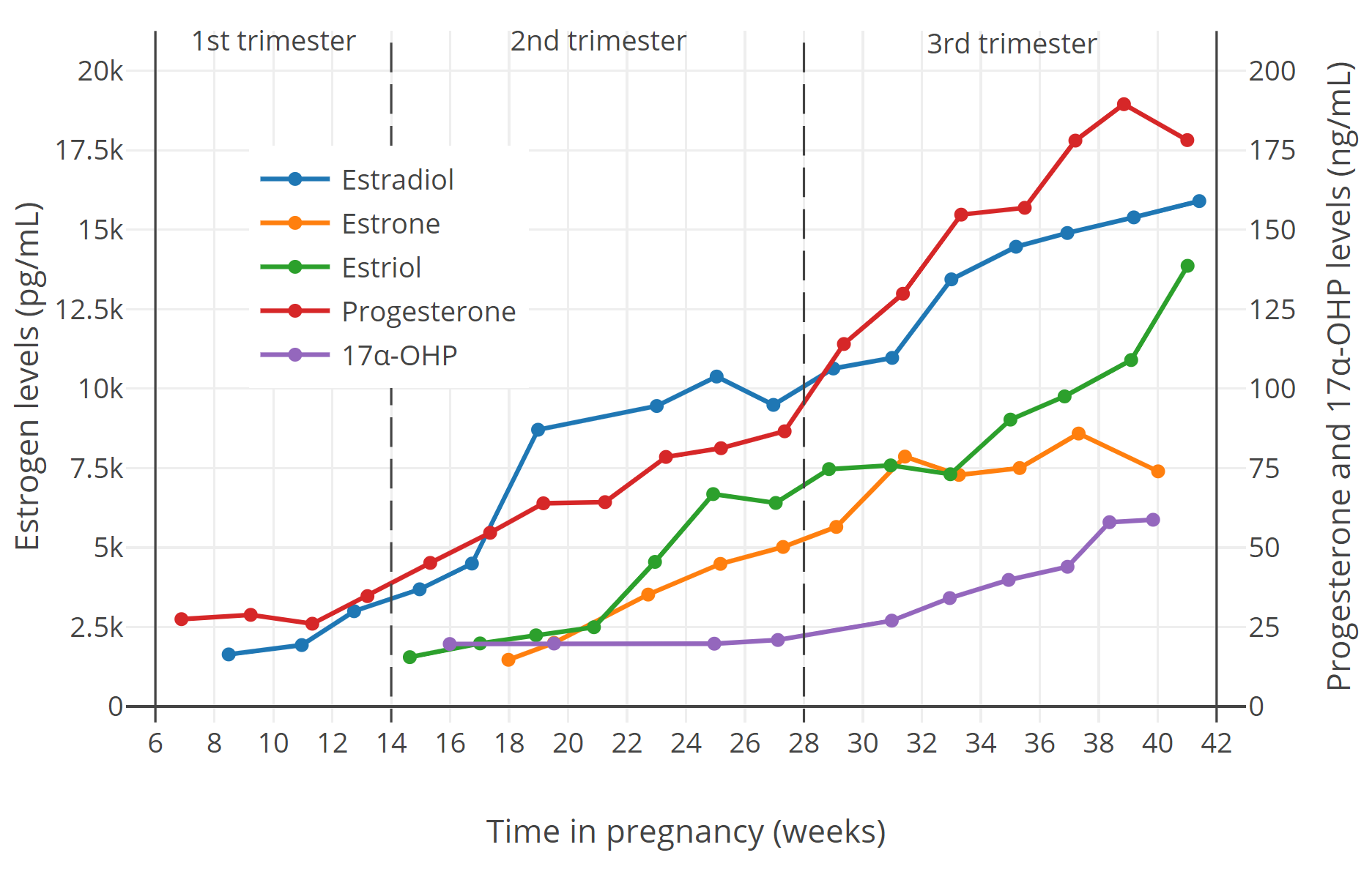
Progesterone Levels with Early Pregnancy
Introduction
Progesterone is a hormone produced by the ovaries during the menstrual cycle and pregnancy. It plays a crucial role in preparing the uterus for implantation and maintaining the pregnancy. Progesterone levels fluctuate throughout the menstrual cycle, and they rise significantly during pregnancy. Monitoring progesterone levels can provide valuable information about the health of a pregnancy and can help diagnose certain complications.
Progesterone Levels During the Menstrual Cycle
During the first half of the menstrual cycle (the follicular phase), progesterone levels are low. After ovulation, the corpus luteum (a small gland that forms on the ovary after ovulation) begins to produce progesterone. Progesterone levels rise rapidly during the luteal phase (the second half of the menstrual cycle), reaching their peak just before menstruation. If pregnancy occurs, the corpus luteum continues to produce progesterone, and levels remain elevated throughout the pregnancy.
Progesterone Levels During Early Pregnancy
In early pregnancy, progesterone levels continue to rise steadily. They reach their peak around the 8th to 10th week of pregnancy and then gradually decline until delivery. The high levels of progesterone during early pregnancy are essential for maintaining the pregnancy. Progesterone helps to:
- Prepare the uterus for implantation
- Maintain the uterine lining
- Suppress uterine contractions
- Promote the growth of the placenta
Monitoring Progesterone Levels in Early Pregnancy
Monitoring progesterone levels in early pregnancy can be done through blood tests. A single progesterone level measurement can provide information about the overall health of the pregnancy. Serial progesterone level measurements (taken over time) can be used to:
- Confirm pregnancy
- Assess the risk of miscarriage
- Monitor the progress of a pregnancy
- Diagnose certain complications, such as ectopic pregnancy or threatened miscarriage
Low Progesterone Levels in Early Pregnancy
Low progesterone levels in early pregnancy can be a sign of a problem. They may be associated with:
- Miscarriage
- Ectopic pregnancy
- Threatened miscarriage
- Luteal phase defect
High Progesterone Levels in Early Pregnancy
High progesterone levels in early pregnancy are generally not a concern. However, they may be associated with:
- Multiple pregnancy
- Gestational trophoblastic disease
Factors that Can Affect Progesterone Levels
Several factors can affect progesterone levels in early pregnancy, including:
- The health of the corpus luteum
- The presence of a viable pregnancy
- Certain medications
- Medical conditions, such as thyroid disease or adrenal insufficiency
Treatment for Low Progesterone Levels
If progesterone levels are low in early pregnancy, treatment may be necessary to support the pregnancy. Treatment options may include:
- Progesterone supplements
- Human chorionic gonadotropin (hCG) injections
Conclusion
Progesterone levels play a vital role in early pregnancy. Monitoring progesterone levels can provide valuable information about the health of a pregnancy and can help diagnose certain complications. If you are pregnant or trying to conceive, it is important to talk to your doctor about monitoring your progesterone levels.